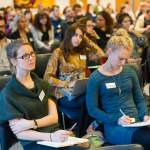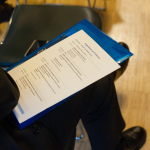Latest news
- We just added selected presentation slides to the programme. [5 Nov 2014]
- Check out the Open Reading List, compiled from recommendations by participants. [9 Oct 2014]
- The event is fully booked now. You can sign up for the waiting list, using the green button on the right. [1 Oct 2014]
- Programme and participants updated. [24 Sep 2014]
- Abstracts now added to the Programme. [9 Aug 2014]
- Registration is now open: register early to secure a place. [8 Apr 2014]
- Please check out the list of confirmed participants. [6 Apr 2014]
- We are putting the finishing touches to the symposium website. [15 Mar 2014]
Photos from the day
About the symposium
Experience has long been referenced as a valuable, if ‘subjective’, resource in a variety of fields. Especially in healthcare, highly personal, embodied understandings of illness have been studied as an alternative to ‘objective’ biomedical knowledge and are often used to critique biomedical reductionism. In the wake of this critique as well as burgeoning patient activism and health consumerism, over the last fifty years an industry has emerged that aims to capture, process and distribute the patient ‘experience’. This raises a number of questions about the nature of the knowledge generated by these ‘technologies of experience’:
- What does it take to turn experience into evidence?
- What new methods and expertise are emerging in this field?
- What promises, pitfalls and politics come with these approaches?
- And what are the implications for research, policy and practice?
The aim of the symposium is to bring together scholars and practitioners from a range of backgrounds, to explore how, why and what new forms of knowledge are emerging out of the ‘experience industry’ and the consequences this has for healthcare. → more
Support
This symposium was supported by funding from the Foundation for the Sociology of Health and Illness, the Wellcome Trust and by the National Institute for Health Research (NIHR) under its Programme Grants for Applied Research funding scheme (RP-PG-0608-10147).







